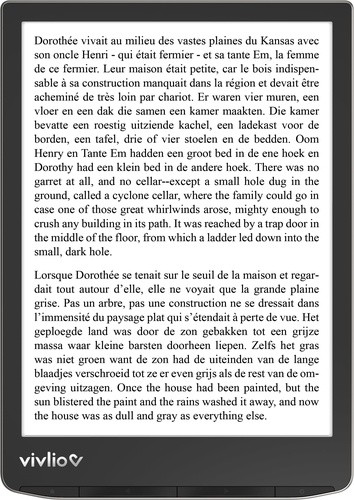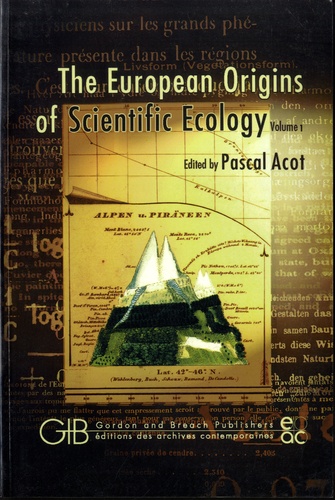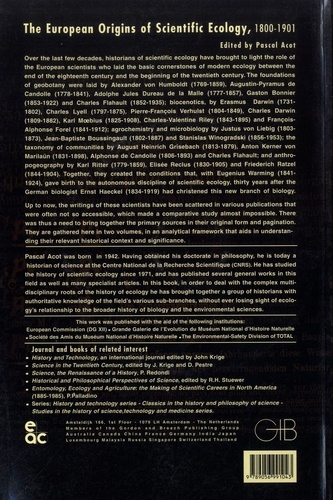En cours de chargement...
Over the last few decades, historians of scientific ecology have brought to light the role of the European scientists who laid the basic cornerstones of modern ecology between the end of the eighteenth century and the beginning of the twentieth century. The foundations of geobotany were laid by Alexander von Humboldt (1769-1859), Augustin-Pyramus de Candolle (1778-1841), Adolphe Jules Dureau de la Malle (1777-1857), Gaston Bonnier (1853-1922) and Charles Flahault (1852-1935) ; biocenotics, by Erasmus Darwin (17311802), Charles Lyell (1797-1875), Pierre-François Verhulst (1804-1849), Charles Darwin (1809-1882), Karl Moebius (1825-1908), Charles-Valentine Riley (1843-1895) and François-Alphonse Foret (1841-1912) ; agrochemistry and microbiology by Justus von Liebig (1803-1873), Jean-Baptiste Boussingault (1802-1887) and Stanislas Winogradski (1856-1953) ; the taxonomy of communities by August Heinrich Grisebach (1813-1879), Anton Kerner von Marilaün (1831-1898), Alphonse de Candolle (1806-1893) and Charles Flahault ; and anthro-pogeography by Karl Ritter (1779-1859), Elisée Reclus (1830-1905) and Friederich Retool (1844-1904).
Together, they created the conditions that, with Eugenius Warming (18411924), gave birth to the autonomous discipline of scientific ecology, thirty years after the German biologist Ernst Haeckel (1834-1919) had christened this new branch of biology. Up to now, the writings of these scientists have been scattered in various publications that were often not so accessible, which made e comparative study almost impossible.
There was thus a need to bring together the primary sources in their original form and pagination. They are gathered here in two volumes, in an analytical framework that aids in understanding their relevant historical context and significance.







